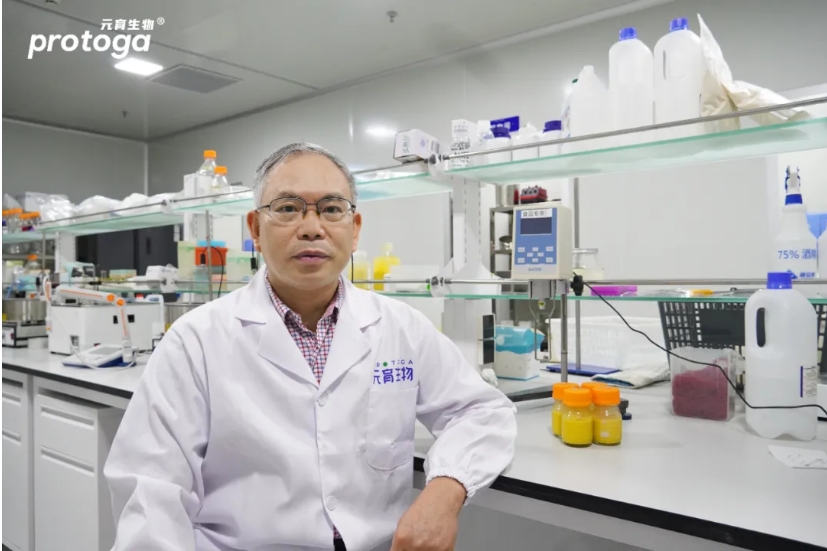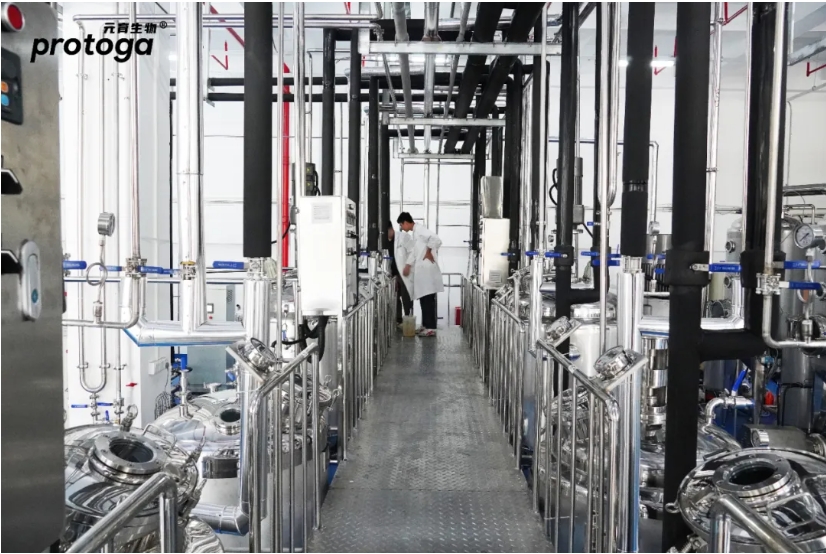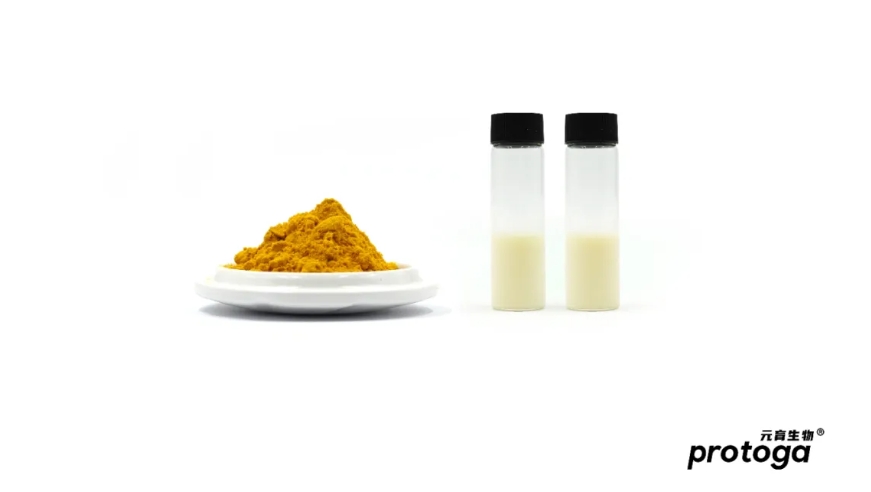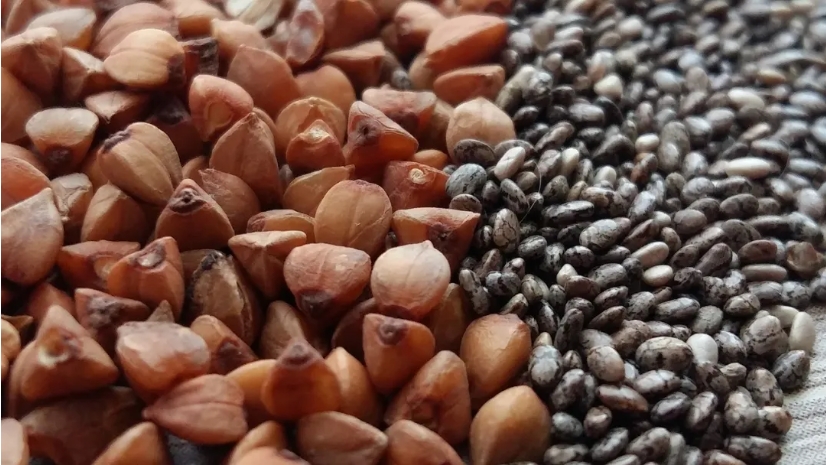Microalgae is one of the oldest species on Earth, a type of tiny algae that can grow in both freshwater and seawater at an astonishing rate of reproduction. It can efficiently utilize light and carbon dioxide for photosynthesis or use simple organic carbon sources for heterotrophic growth, and synthesize various nutrients such as proteins, sugars, and oils through cellular metabolism.
Therefore, microalgae are regarded as the ideal chassis cells for achieving green and sustainable biological manufacturing, and have been widely used in various fields such as food, health products, pharmaceuticals, cosmetics, biofuels, and bioplastics.
Recently, a domestic microalgae synthetic biology company, Protoga Biotech, announced that its innovative microalgae protein has successfully passed the pilot production stage, with a maximum production capacity of 600 kilograms of protein per day. The first product based on innovative microalgae protein, microalgae plant milk, has also passed the pilot test and is expected to be launched and sold by the end of this year.
Taking this opportunity, Shenghui interviewed Dr. Li Yanqun, the chief engineer of application development at protoga Biotechnology. He introduced to Shenghui the details of the successful pilot test of microalgae protein and the development prospects in the field of plant protein. Li Yanqun has over 40 years of scientific and technological work experience in the field of large food, mainly engaged in research and application development of microalgae biotechnology and food biotechnology. He graduated with a PhD in Fermentation Engineering from Jiangnan University. Before joining protoga Biology, he served as a professor at the School of Food Science and Technology, Guangdong Ocean University.
“As the company name implies, protoga Biotechnology needs to both innovate from scratch and have the ability to grow from scratch. protoga represents the core spirit of the company, which is our commitment to innovation at the source and the development of original innovative technologies and products. Education is to cultivate and grow, and the technology and concepts of innovation at the source need to develop into a new industry, new consumption mode, and even a new economic format. We have opened up a new path to produce high-value products using microalgae, which is an important supplement to the production and supply of food resources, in line with the current advocated concept of big food, while also improving environmental issues.” Li Yanqun told Shenghui.
The technology originates from Tsinghua University, with a focus on promoting microalgae plant proteins
protoga Biotechnology is a biotechnology company established in 2021, focusing on the development and product processing of microalgae technology. Its technology is derived from nearly 30 years of research accumulation in the microalgae laboratory of Tsinghua University. Public information shows that since its establishment, the company has raised over 100 million yuan in financing and expanded its scale.
At present, it has established a technology research and development laboratory for synthetic biology in Shenzhen, a pilot experimental base in Zhuhai, a production factory in Qingdao, and an international marketing center in Beijing, covering the product development, pilot testing, production, and commercialization processes.
Specifically, the technology research and development laboratory of synthetic biology in Shenzhen mainly focuses on basic research and has a complete technical chain from basic cell engineering, metabolic pathway construction, strain screening technology to product development; It has a pilot base of 3000 square meters in Zhuhai and has been put into pilot production. Its main responsibility is to scale up the fermentation and cultivation of algae or bacterial strains developed by the R&D laboratory on a pilot scale, and further process the biomass produced by fermentation into products; The Qingdao factory is an industrial production line responsible for the large-scale production of products.
Based on these technological platforms and production facilities, we are using industrial methods to cultivate microalgae and produce various microalgae based raw materials and bulk products, including microalgae protein, levastaxanthin, microalgae exosomes, DHA algal oil, and naked algae polysaccharides. Among them, DHA algal oil and naked algae polysaccharides have been launched for sale, while microalgae protein is our innovative product at the source and a key project to promote and scale production. In fact, the core position of microalgal proteins can also be seen from the English name of metazoa, which can be understood as the abbreviation of “protein of microalga”
Microalgae protein has successfully passed the pilot test, and it is expected that microalgae plant-based milk will be launched by the end of the year
“Protein is an important nutrient that can be divided into animal protein and plant protein. However, there are still issues with insufficient and unbalanced protein supply worldwide. The reason behind this is that protein production mainly relies on animals, with low conversion efficiency and high costs. With changes in dietary habits and consumption concepts, the importance of plant protein is becoming increasingly prominent. We believe that plant protein, such as the innovative microalgae protein we have developed, has great potential to improve protein supply,” said Li Yanqun.
He further introduced that compared to others, the company’s microalgae plant protein has multiple advantages in production efficiency, uniformity, stability, environmental protection, and nutritional value. Firstly, our microalgal protein is actually more like “fermentation protein”, which is plant protein produced using fermentation technology. In contrast, the production process of this fermented protein is faster, and the fermentation process can take place throughout the year without being affected by the season; In terms of controllability and consistency, the fermentation process is carried out in a controlled environment, which can ensure the quality and consistency of the product. At the same time, the predictability and controllability of the fermentation process are higher, which can reduce the influence of weather and other external factors; In terms of safety, the production process of this fermented protein can better control pollutants and pathogens, improve food safety, and also extend the shelf life of the product through fermentation technology; Our fermented plant protein also has environmental benefits. The fermentation process can reduce the consumption of natural resources such as land and water, reduce the use of fertilizers and pesticides in agricultural production, and also reduce carbon footprint and greenhouse gas emissions.
“In addition, the nutritional value of microalgae plant protein is also very rich. Its amino acid composition is more reasonable and in line with the amino acid composition pattern recommended by the World Health Organization than that of major crops such as rice, wheat, corn, and soybeans. In addition, microalgae plant protein only contains a small amount of oil, mainly unsaturated oil, and does not contain cholesterol, which is more beneficial for the body’s nutritional balance. On the other hand, microalgae plant protein also contains other nutrients, including carotenoids, vitamins, bio based minerals, and so on.” Li Yanqun said confidently.
Shenghui learned that the company’s development strategy for microalgae protein is divided into two aspects. On the one hand, developing innovative microalgae protein raw materials to provide raw materials for companies such as food, cosmetics, or biological agents; On the other hand, a series of related products have been launched based on innovative microalgae protein, forming a matrix of microalgae protein products. The first product is microalgae plant milk.
It is worth mentioning that the company’s microalgae protein has recently passed the pilot production stage, with a pilot production capacity of about 600 kg/day of microalgae protein powder. It is expected to be launched within this year. In addition, microalgae protein has also undergone relevant intellectual property layout and applied for a series of invention patents. Li Yanqun candidly stated that protein development is a long-term strategy of the company, and microalgal protein is an important link in achieving this strategy. The successful pilot test of microalgae protein this time is an important milestone in achieving our long-term strategy. The implementation of innovative products will contribute to the healthy development of the company and bring stronger vitality to its continuous operation; For society, this is the implementation of the concept of the big food concept, further enriching the resources of the food market.
Plant milk is a large category of plant-based foods on the market, including soy milk, walnut milk, peanut milk, oat milk, coconut milk, and almond milk. protoga Biology’s microalgae plant-based milk will be a new category of plant-based milk, expected to be launched and sold by the end of this year, and will become the world’s first truly commercialized microalgae plant-based milk.
Soy milk has a relatively high protein content, but there is a beany smell and anti nutritional factors in soybeans, which may affect its effective utilization in the body. Oat is a grain product with a lower protein content, and consuming the same amount of protein will result in more carbohydrates. Plant milk such as almond milk, coconut milk, and peanut milk have a higher oil content, and may consume more oil when consumed. Compared with these products, microalgae plant milk has lower oil and starch content, with a higher protein content. Microalgae plant milk from primitive organisms is made from microalgae, which contains lutein, carotenoids, and vitamins, and has richer nutritional value. Another characteristic is that This plant-based milk is produced using algae cells and retains complete nutrients, including rich dietary fiber; In terms of flavor, plant-based protein milk often has some flavor derived from the plants themselves. Our selected microalgae has a faint microalgal aroma and is regulated to present different flavors through proprietary technology. I believe that microalgae plant-based milk, as a new type of product, will inevitably drive and lead the development of the industry, thereby promoting the development of the entire plant-based milk market Li Yanqun explained.
“The plant protein market is facing a good opportunity for development”
Plant protein is a type of protein derived from plants, which is easily digested and absorbed by the human body. It is one of the important sources of human food protein and, like animal protein, can support various life activities such as human growth and energy supply. For vegetarians, people with animal protein allergies, as well as certain religious beliefs and environmentalists, it is more friendly and even a necessity.
“From the perspectives of consumer demand, healthy eating trends, and food safety, people’s demand for sustainable food and meat protein substitutes is increasing. I believe that the proportion of plant protein in people’s diet will continue to increase, and the corresponding structure and supply of food raw materials will also undergo significant changes. In short, the demand for plant protein will continue to rise in the future, and the market for plant protein is ushering in a good opportunity for development,” said Li Yanqun.
According to The Bussiness Research Company’s 2024 Global Market Report on Plant Protein, the market size of plant protein has been growing exponentially in recent years. The market size in 2024 will grow to $52.08 billion, and it is expected that the market size in this field will increase to $107.28 billion by 2028, with a compound annual growth rate of approximately 19.8%.
Li Yanqun further pointed out, “In fact, the plant protein industry has a long history and is not an emerging industry. In the past decade, with the entire plant protein market becoming more systematic and people’s attitudes changing, it has once again attracted attention. It is expected that the global market growth rate will approach 20% in the next 10 years.”
However, he also mentioned that although the plant protein industry is currently in a rapid development stage, there are still many problems to be solved and improved in the development process. Firstly, there is the issue of consumption habits. For some non-traditional plant proteins, consumers need to gradually familiarize themselves with the acceptance process; Then there is the issue of the flavor of plant proteins. Plant proteins themselves have a unique flavor, which also requires a process of acceptance and recognition. At the same time, appropriate treatment through technical means is also necessary in the initial stage; In addition, there are issues with regulatory standards, and at present, some plant proteins may be involved in issues such as the lack of appropriate regulations to follow.
Post time: Jul-09-2024




